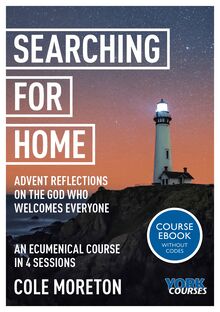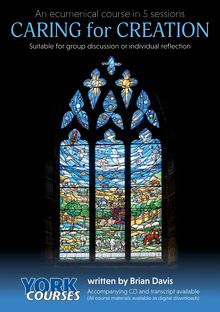-
 Univers
Univers
-
 Ebooks
Ebooks
-
 Livres audio
Livres audio
-
 Presse
Presse
-
 Podcasts
Podcasts
-
 BD
BD
-
 Documents
Documents
-
- Cours
- Révisions
- Ressources pédagogiques
- Sciences de l’éducation
- Manuels scolaires
- Langues
- Travaux de classe
- Annales de BEP
- Etudes supérieures
- Maternelle et primaire
- Fiches de lecture
- Orientation scolaire
- Méthodologie
- Corrigés de devoir
- Annales d’examens et concours
- Annales du bac
- Annales du brevet
- Rapports de stage
La lecture à portée de main
Vous pourrez modifier la taille du texte de cet ouvrage
Découvre YouScribe en t'inscrivant gratuitement
Je m'inscrisDécouvre YouScribe en t'inscrivant gratuitement
Je m'inscrisEn savoir plus
Vous pourrez modifier la taille du texte de cet ouvrage
En savoir plus

Description
Living in Hope is the York Course written for Advent 2021 by Catherine Fox.
In this enlightening and absorbing four-session ecumenical course, Catherine Fox explores living in hope and dying well.
As with previous Advent York Courses, the standard study book is supported by an in-depth interview, covering all 4 sessions between Catherine Fox and Simon Stanley, available on CD, as a Digital Download or as a transcript in either paperback or eBook.
Session 1: Living well
Session 2: Dying well
Session 3: Hell-bent on destruction?
Session 4: Going to heaven?
This York Course is available in the following formats
Course Book (Paperback 9781909107298)
Course Book (eBook 9781909107588)
Audio Book of Interview to support Living in Hope York Course (CD 9781909107434)
Audio Book of Interview (Digital Download 9781909107571)
Transcript of interview to support Living in Hope York Course (Paperback 9781909107304)
Transcript of interview (eBook 9781909107595)
Book Pack (9781909107411 Featuring Paperback Course Book, Audio Book on CD and Paperback Transcript of Interview)
Large print (9781909107601)
Sujets
Informations
| Publié par | SPCK |
| Date de parution | 20 août 2020 |
| Nombre de lectures | 0 |
| EAN13 | 9781909107595 |
| Langue | English |
Informations légales : prix de location à la page 0,0250€. Cette information est donnée uniquement à titre indicatif conformément à la législation en vigueur.
Extrait
TRANSCRIPT
of the course audio for
LIVING IN HOPE
An ecumenical course in 4 sessions for discussion groups and individuals
written by Catherine Fox
TRACK MENU:
[ 1-12]Session 1 Living well
[13-19]Session 2 Dying well
[20-23]Session 3Hell-bent on destruction?
[24-30]Session 4 Going to heaven when we die?
[1] This course was recorded during the Covid19 lockdown of 2020. It meant that Catherine Fox and I were not talking face to face, as we would normally be, but we were each in our own homes, chatting across the internet. For that reason, you may notice that the recording quality is sometimes not to our usual standard. We hope you understand, and that it doesn’t diminish your enjoyment of this course.
YORK COURSES presents LIVING IN HOPE
Session 1: Living well
Hello, I’m Simon Stanley, and I’m delighted to be with Catherine Fox, the writer of this Advent course ‘Living in Hope’. Catherine, welcome.
CF : Thank you.
I’m looking forward to doing a bit of delving into your wonderful course booklet, but before we get going, I should mention that occasionally I’ll be inserting into our discussion the voices of four totally independent people , who we recorded beforehand. We asked them to answer questions that relate to some of the things we’re going to be talking about. We’ll call them simply our ‘Voices’, but I can tell you that they are different ages, and belong to different Christian denominations; they are Emma , Jan, George and Jim.
[2] So, let’s begin with Session One: ‘Living well’. You say at the very beginning of this session that Advent, the period before Christmas , is historically a time for considering the Last Four Things : Death, Judgement, Heaven and Hell. Not very cheery, but in fact we were going to call the whole course: ‘Death , Judgement, Heaven and Hell’, but we thought that the title might put people off! So we changed it to ‘Living in Hope’. And that’s because, also right at the start of the course, you say that Advent has traditionally been a season of hope and preparation. Now which is it: concentrating on the Four Last Things or on living in hope?
CF : Well, I’m going to do the typical Anglican thing of saying, ‘It depends’! Or there’s a middle way through here. I think it’s both. Because I think, thinking about those Last Things can lead us on to waiting in hope, and in joyful hope, for the coming of our Lord again into our lives. And remembering how he came that first Christmas season, as a baby in Bethlehem.
OK, so it’s a bit of both, with the one sort of making sense of the other, isn’t it? Yeah.
CF : I think so, yes.
[3] Now, onto the title of ‘ Living well’. You suggest a few examples of what that might involve: seizing the day; counting our blessings; not taking things for granted. And then you tell the story of the rabbi, who says: What if there was only one question God puts to us when we die: ‘Did you enjoy my creation?’ And that’s a brilliant question, and it was the first one we put to our Voices:
George: What I saw of it, yes. But it reminds me of a poem which says: ‘Dear Lord, I thank and praise you for the life you’ve given me , I praise you for everything around me, the creation that I see’.
Emma: Yes, to most of it. I do very much enjoy life as a whole, but I do think humans could have improvements.
Jan: I’d say from the bits of the world that I’ve travelled , I think the Earth is incredible, but maybe some of the people on it aren’t quite as good as they should be.
Jim: Well that presumes a very sort of Old Testament view of God, sitting in the reception room and greeting the arrivals and challenging them and so on. If that’s how things turn out, I’ ll have to say wholeheartedly I did enjoy the creation. I think that the whole of natural creation is astonishing, and manmade things too are astonishing. Man being God’s creation, and the ingenuity that has made modern life and modern medicine and modern developments so successful is really something to marvel at every moment.
[4] There we are. And are you enjoying God’s creation?
CF : Yes, yes, I am - and perhaps acutely at the moment. Since I wrote that Advent course our world has reconfigured around us, as we’ve all been seeking to respond to the international emergency that we find ourselves in, with the Coronavirus pandemic - and this is, as we sit talking now, this is Day One of the lockdown in the UK. And that is now, I think, the filter through which I’m looking at God’s creation. In all its glory, but also in my strong sense of how small I am, now, and how fragile the human race is. Perhaps when I was writing, that wasn’t at the forefront of my mind - I really don’t think it was. But last night, after we heard the announcement from the Prime Minister that basically the whole country was to stay at home, apart from taking walks once a day by ourselves, I went for a walk around the quiet streets in the dark where I live. And low on the horizon in the west was the brightest planet I’ve ever seen - Venus, I think - almost shining, with a halo around it. And it made me think of the star that guided the Magi, and it threw me back onto wonder at God’s creation, and thinking how glad I am to have experienced it.
[5] That was lovely . And it must have cheered you up on what had been a miserable day.
CF : Yes, yes. And the thought of how precious our human lives are. Those we love, those we won’t see again for quite a long time - and definitely resonating with those thoughts of the other goodbye that we will be making to our friends and loved ones, either because they die, or because we die - and that hope of meeting again on the other side. So colleagues at work were saying to me, ‘I’ll see you on the other side’. On the other side of this crisis, but also it just reverberates with those big themes that I think are on the hearts and minds of so many of us now. So, inadvertently, talking about the Four Last Things feels like the right thing for us to be doing at the moment.
[ 6] Yes, yes. You quote from The Westminster Shorter Catechism of 1647 which - you all know very well of course! - begins with the question: ‘What is the chief end of man?’ The answer it gives is: ‘The chief end of man is to glorify God and to enjoy him forever.’ Now is that what we are supposed to spend all our lives doing? How would it go? You also say that you think there’s a close link between glorifying God and enjoying God, and that link is reflection. Can you clarify that a bit?
CF : Yes. I think it’s to do with the idea of looking into God’s face, which is, of course, this is metaphorical speaking. We can’t literally look into God’s face. All our language about God is to do with – we’re reaching for images to say, it’s like this, it’s like that. So, the moment when you look into someone’s face and there’s a shared thought darts between you, or a shared love. Or perhaps when you hold a small baby, and the baby looks at you and breaks out into a huge gummy beam. And that moment of reflecting back and forth the love and, I don’t know, the closeness and enjoyment of a relationship, that’s the kind of thing I think that I was wanting to describe.
-
 Univers
Univers
-
 Ebooks
Ebooks
-
 Livres audio
Livres audio
-
 Presse
Presse
-
 Podcasts
Podcasts
-
 BD
BD
-
 Documents
Documents
-
Jeunesse
-
Littérature
-
Ressources professionnelles
-
Santé et bien-être
-
Savoirs
-
Education
-
Loisirs et hobbies
-
Art, musique et cinéma
-
Actualité et débat de société
-
Jeunesse
-
Littérature
-
Ressources professionnelles
-
Santé et bien-être
-
Savoirs
-
Education
-
Loisirs et hobbies
-
Art, musique et cinéma
-
Actualité et débat de société
-
Actualités
-
Lifestyle
-
Presse jeunesse
-
Presse professionnelle
-
Pratique
-
Presse sportive
-
Presse internationale
-
Culture & Médias
-
Action et Aventures
-
Science-fiction et Fantasy
-
Société
-
Jeunesse
-
Littérature
-
Ressources professionnelles
-
Santé et bien-être
-
Savoirs
-
Education
-
Loisirs et hobbies
-
Art, musique et cinéma
-
Actualité et débat de société
- Cours
- Révisions
- Ressources pédagogiques
- Sciences de l’éducation
- Manuels scolaires
- Langues
- Travaux de classe
- Annales de BEP
- Etudes supérieures
- Maternelle et primaire
- Fiches de lecture
- Orientation scolaire
- Méthodologie
- Corrigés de devoir
- Annales d’examens et concours
- Annales du bac
- Annales du brevet
- Rapports de stage
















